Newcomers to the sport of fly fishing can feel overwhelmed and lost at times. The challenges faced by the novice fly fisherman can be significant and the lack of positive feedback from successfully enticing a fish to take your imitation can make the prospect of learning the ropes a daunting one. Especially here in the eastern United States where the fish populations are lower and pressure is higher, more selective, more "educated" fish can make the task facing the unexperienced fisherman seem, at times, impossible.
Take for example my experience last week on the West Branch of the Delaware River, albeit one of the most technical and difficult rivers to fish anywhere in the United States. After a day of nothing much at all except prospecting with nymphs and streamers under sunny skies and through low, gin clear water, fish began to rise readily after the sun dipped below the horizon and a number of bugs appeared on the river. With at least a dozen fish to target from my spot in the river, surely success was about to be had, no? No. With no less than 6 different bugs on the water and in various life stages, the next hour was spent blowing through patterns and rigs and all to no avail. Walking off the river in the dark and straddling a boulder in the process, led to a pathetic, helpless slide into the water and a pair of filled up waders.
As a more experienced angler, I know a few things that help me cope with this sort of a day on the water. First and foremost, I know that this is part of the game (especially on rivers like the Delaware). Second, I know that I have a lot of improving to do, regardless of my previous experience. Most importantly, I know what parts of my fishing ability I'm confident of, and which parts I'm not. Leaving the Delaware that day, I felt confident my drifts and presentation were on target and that my pattern selections made sense given the information at hand. The fact that I didn't find success? Well, there is a laundry list of possible reasons, but most likely not on that list is the idea I'm a useless idiot that has no idea what he's doing and should probably break my rod over my knee or sell it on eBay.

I know that last fact to (most likely) not be true because I've spent enough time on the water testing my skills and getting feedback on what does and doesn't work. These trial-and-error experiences are what build every angler's skills and no one progresses without them. Yet, as mentioned, this feedback can be hard to find on pressured eastern waters as -- just by virtue of fish populations and fishing pressure -- even skillful and appropriate tactics often go unrewarded.
It is this reason specifically that I recommend to beginner anglers here in the east that they spend at least part of their time fishing for native brook trout. Even though the mountain freestone streams of the eastern US aren't the storied streams of the region, they dot the map from Georgia to Maine, and are inhabited by lightly or virtually un-pressured brook trout who feed aggressively and without selectivity. These voracious feeders won't double over your 5 weight, like some of the bulky browns found in rivers like the Delaware, but they'll provide the feedback that the beginner angler needs. Getting confident with dry fly presentations, hook sets and more will come quickly and more easily on these more forgiving waters.
You'll want to return regularly to the rivers that leave you shaking your head, in order to test the skills you've built confidence in pursuing less demanding subjects. When you do, you'll fish with more confidence and feel less daunted and frustrated by the challenges facing you on the water, especially when you inevitably get skunked again by those picky browns that inhabit that glass still spring creek you insist on torturing yourself with.

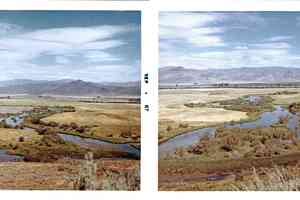




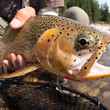

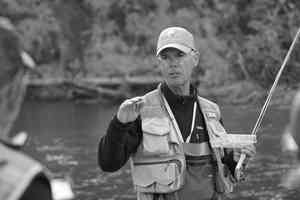






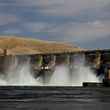
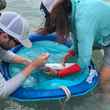


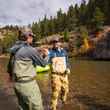




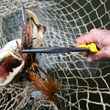
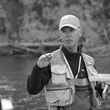
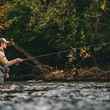



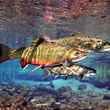
Comments